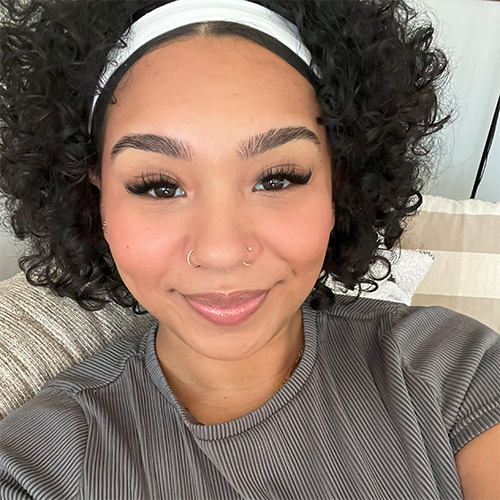When I started college at the height of the COVID-19 pandemic, the world shut down, leaving the future for many aspiring health professionals, including myself, uncertain.
Yet we persisted, and as the restrictions lifted, we saw a light at the end of the tunnel.
However, after the fall of Roe, uncertainty loomed again for women, especially those of us from marginalized communities.
I hadn’t pictured living in a world where women could have their right to bodily autonomy stripped away from them – which is exactly what happened when the Supreme Court overturned Roe v. Wade. As this case made its way through the judicial system in 2022, I viewed it as another fight we would win because of the society we live in today, where the majority of people support abortion access. Little did I imagine the devastating impact this ruling would have on reproductive rights across the nation.
It was a scary time to be a young Afro-Latina woman and health professional. I could never have anticipated rethinking my career again or wondering what I would do if I needed this essential health care. I know I am only one of hundreds and thousands of women who felt this same uncertainty and fear in the post-Dobbs era.
As I look forward to my next steps post-grad, I find myself facing challenges along with many young health professionals like myself. Transitioning into new phases of life takes a toll on one’s mental health, and I am no exception. But, as an Afro-Latina woman, I am also burdened with the additional layer of barriers to accessing contraception, abortion, quality reproductive services, and navigating racism in the healthcare system. It’s disheartening to realize that locations I once envisioned as ideal for taking the next positive steps in my personal and professional life now leave me struggling with conflicting emotions and doubts about my future.
Post-Dobbs Ripple Effects
As a consequence of Dobbs, multiple states implemented laws prohibiting or restricting abortion access. While this has diminished access to abortion and other reproductive health care across the nation, it has impacted access to medication abortion and emergency medical care, and taken a toll on women’s mental health.
Recent survey data reveals an 8.5% increase in anxiety and depression among women of all ages living in states with trigger laws that ban abortion. Having autonomy over one’s reproductive choice is closely linked to feelings of empowerment and overall mental wellness for many women. So, when our autonomy is undermined, it makes perfect sense that we would feel anxious, sad, and scared.
I am especially impacted by the consequences of Dobbs as a Latina woman and a young health professional. People like me have faced additional barriers and uncertainties as we navigate our careers and personal lives in a landscape where reproductive rights are no longer guaranteed. Nearly 6.7 million Latinas – 43 percent of all Latinas ages 15-49 – live in the 26 states that have banned or are likely to ban abortion. For many Latinas in the health profession, this has led to concerns about their ability to provide comprehensive care and cast doubt on the viability of certain locations as desirable places to build their families and careers.
Dobbs has also created harmful consequences for young health professionals, including taking on an increased risk of criminalization, facing inadequate medical training, and being forced to relocate to continue to provide care. All of this has created uncertainty and limited reproductive health care access for current and future generations.
Keeping Hope Alive
Two years after the fall of Roe, I find myself contemplating my career path and my future, and grappling with the toll of Dobbs’ consequences on my mental well-being. Uncertainty looms over my decisions, and reproductive restrictions in certain places add another layer of complexity. It’s hard not to feel disheartened or self-doubt. Despite these challenges, keeping hope alive is crucial. As young people, we must stay strong and dedicated to activism, civic engagement, and solidarity so we can amplify our voices and demand change. We cannot let setbacks discourage us. Drawing inspiration from past generations’ struggles for civil rights, women’s rights, and human rights, we can pave the way for a future where reproductive rights are recognized as fundamental.
We possess the power to catalyze transformative social change. Our voices will resonate loudly, echoing historic calls for justice that have shaped progress across generations. We will push ahead, undefeated by obstacles, in this vital journey to achieve a future of equity, empowerment, and self-determination for all.


